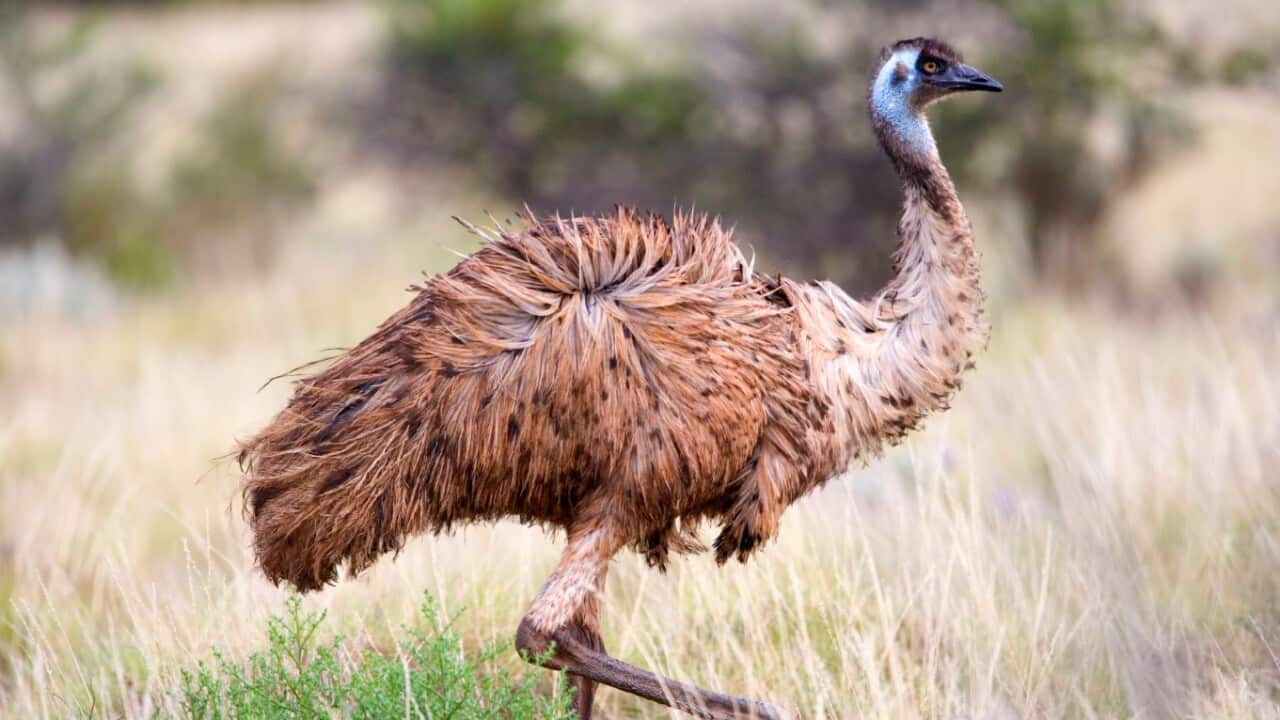Mabu Mabu is a local term for “help yourself”, a common phrase around the dinner table for the people of Mer Island, where chef Nornie Bero was born and raised. Of the eight clans on Mer Island, Nornie is from the . It also happens to be the name of Bero’s Indigenous deli based in the South Melbourne market offering dips, herb sauces, curry pastes, jams and chutneys all rich with local, native, seasonal ingredients. There's also a , designed to serve feasts for family, corporate and community events.
Bero has been a chef for 20 years: she trained in Melbourne’s Italian restaurants and a Japanese restaurant in London, before returning to work in Melbourne. Having run , the kitchen at in Melbourne's inner north, for three years, she felt prepared to step into her own business.
In November 2018, she and a small team of four, set up in a small market stall in the . "The idea was to make it easy to shop for, and use, native ingredients and to create a place in Melbourne's multicultural food ecosystem for Indigenous ingredients," says Bero.
The daily lunch packs are snapped up by local workers and curious market visitors. with saltbush has featured on the menu, along with , and lamb ribs with buffalo curd tzatziki, sea parsley and saltbush.
The idea was to make it easy to shop for, and use, native ingredients and to create a place in Melbourne's multicultural food ecosystem for Indigenous ingredients.
“The food culture of the Torres Strait has been influenced by Asian and Polynesian people for centuries,” she says. Traditional foods include soy sauce, coconut milk, lemongrass, native herbs such as lemon myrtle and saltbush, and green mango – which many kids from the Islands make into a green mango pickle. “Food is often simple, because the Torres Strait isn’t a wealthy place, but it’s incredibly delicious.” On the current catering menu is (a traditional cured fish dish with coconut and lime), kangaroo and emu sliders, salmon with saltbush or sea bass with mustard cress. There are also Mabu tarts (puff pastry shells with a mixture of vibrant native herb fillings), wattleseed falafel and native spiced lamb koftas. Meatier meal options include charred beef skewers with , kangaroo tartare, quince-glazed kangaroo, and pickled pineapple with grilled pumpkin.
On the current catering menu is (a traditional cured fish dish with coconut and lime), kangaroo and emu sliders, salmon with saltbush or sea bass with mustard cress. There are also Mabu tarts (puff pastry shells with a mixture of vibrant native herb fillings), wattleseed falafel and native spiced lamb koftas. Meatier meal options include charred beef skewers with , kangaroo tartare, quince-glazed kangaroo, and pickled pineapple with grilled pumpkin.

On the menu: namas and oysters. Source: Mabu Mabu
Sharon Winsor is a woman who runs “Food brings people together, and native foods are a starter for people to learn about our history, culture, traditional lifestyles and more," she says. "Bush foods have been here for more than ; that’s a long time of good healthy lifestyles that our people survived on. We want to share that with everyone, not just Aboriginal people. For all of Australia to learn, respect and enjoy.”
Bringing native food to the masses has not been without challenges. Without greater awareness and demand for native ingredients, there hasn’t been an established, reliable distribution process. “Our fresh produce providers have really taken an interest in the ingredients since we’ve been asking for it and there are a lot of incredible businesses who are working to improve the production and distribution of native ingredients while also ensuring that this industry is controlled by First Peoples,” says Bero. “For example, has recently donated 100,000 euros to support Indigenous growers and the supply chain.”
Renowned Indigenous chef believes the key to improving supply is to share native foods and educate people on how to use them. “It's important to continue to support the producers and businesses that make it commercially viable and more accessible and affordable for everyone,” he says. “It's fantastic to see many Australians starting to grow their own as well, such as finger limes, lemon myrtle, salt bush and Warrigal greens. We all have a curry and Chinese five spice in the cupboard. Like Vegemite, we should be proud of what our national cuisine is and utilise it daily.”
Beyond her role in sharing native food with the broader public, Bero wants to employ people who may otherwise struggle to be recognised and valued. “I'm trying to work with Indigenous youth employment agencies so that we can provide a leg-up to other people in my community. We want to employ youth who are Indigenous, refugees, kids who are struggling to be recognised as valuable in the workforce. It's an Indigenous owned and run business that provides employment to everyone. We're all Australians, in one way or another. I think we should be working together.”
Love the story? Follow the author here: Twitter , Facebook , Instagram .
Stall 72, South Melbourne Market
Corner of Coventry and Cecil streets, South Melbourne
Wed, Sat - Sun 8 am - 4 pm, Fri 8 am - 5pm








